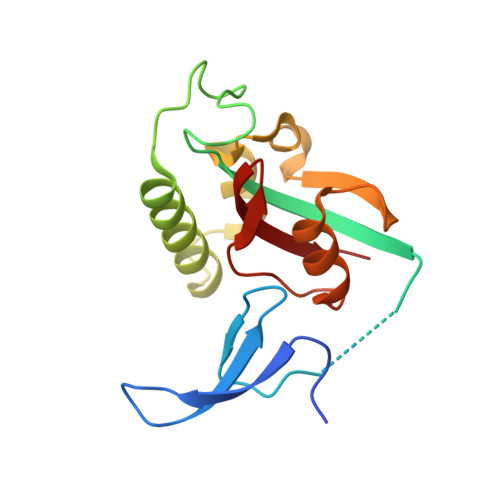Epigallocatechin-gallate suppresses tumorigenesis by directly targeting Pin1.
Urusova, D.V., Shim, J.H., Kim, D.J., Jung, S.K., Zykova, T.A., Carper, A., Bode, A.M., Dong, Z.(2011) Cancer Prev Res (Phila) 4: 1366-1377
- PubMed: 21750208
- DOI: https://doi.org/10.1158/1940-6207.CAPR-11-0301
- Primary Citation of Related Structures:
3OOB - PubMed Abstract:
The most active anticancer component in green tea is epigallocatechin-3-gallate (EGCG). The human peptidyl prolyl cis/trans isomerase (Pin1) plays a critical role in oncogenic signaling. Herein, we report the X-ray crystal structure of the Pin1/EGCG complex resolved at 1.9 Å resolution. Notably, the structure revealed the presence of EGCG in both the WW and PPIase domains of Pin1. The direct binding of EGCG with Pin1 was confirmed and the interaction inhibited Pin1 PPIase activity. In addition, proliferation of cells expressing Pin1 was inhibited and tumor growth in a xenograft mouse model was suppressed. The binding of EGCG with Arg17 in the WW domain prevented the binding of c-Jun, a well-known Pin1 substrate. EGCG treatment corresponded with a decreased abundance of cyclin D1 and diminution of 12-O-tetradecanoylphorbol-l3-acetate-induced AP-1 or NF-κB promoter activity in cells expressing Pin1. Overall, these results showed that EGCG directly suppresses the tumor-promoting effect of Pin1.
Organizational Affiliation:
The Hormel Institute, University of Minnesota, Austin, MN 55912, USA. [email protected]

















